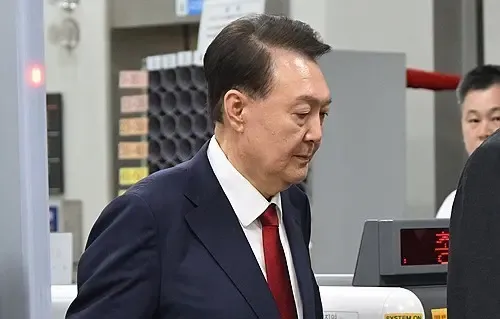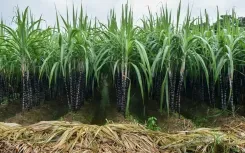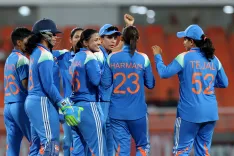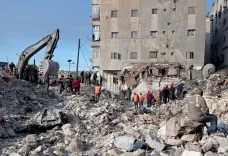How Will South Korea and the Czech Republic Ensure the Successful Completion of the Dukovany Nuclear Project?
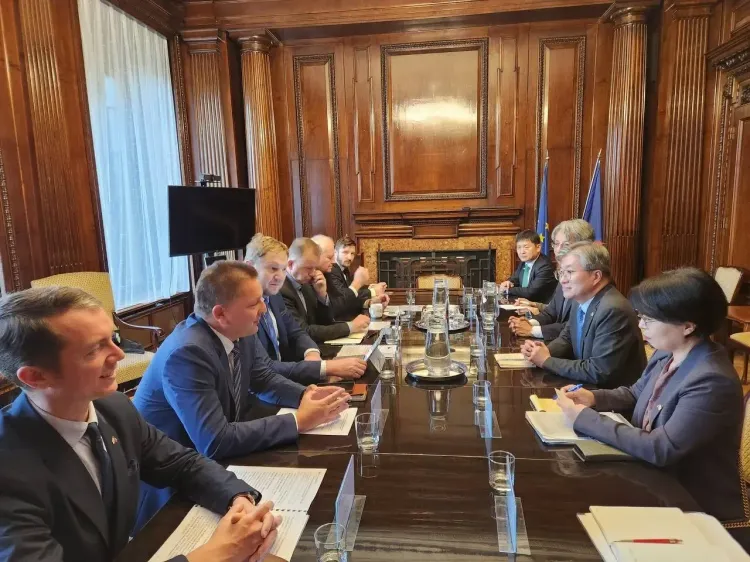
Synopsis
Key Takeaways
- South Korea and the Czech Republic are collaborating on a $18 billion nuclear project.
- Initial construction efforts have begun in Dukovany after resolving legal challenges.
- Enhanced cooperation in advanced technologies will support economic growth.
- The Kori-2 reactor's lifespan extension could set a precedent for other aging reactors.
- South Korea’s existing nuclear reactors remain a key part of its energy mix.
Seoul, Sep 25 (NationPress) Senior diplomats from South Korea and the Czech Republic have reached an agreement to collaborate effectively in order to facilitate the successful completion of a construction project involving two nuclear power plants led by South Korea, as stated by Seoul's foreign ministry on Thursday.
The nations have finalized the projected investment of approximately US$18 billion after resolving persistent legal challenges posed by international competitors, and preliminary work has commenced to initiate construction in Dukovany, located in the southern region of the Czech Republic.
During their sixth Economic Joint Committee meeting in Prague on Wednesday (local time), Kim Hee-sang, the deputy foreign minister for economic affairs, engaged in discussions about the project with David Muller, the director general for the European Union and foreign trade section of the Czech Ministry of Industry and Trade.
The ministry reported, "They evaluated the construction timeline and committed to working closely to guarantee that the nuclear power plants' construction proceeds without delays."
Additionally, they agreed to enhance collaboration in advanced technologies such as semiconductors, electric vehicles, and batteries, while also expanding their partnership in the defense sector and energy transition, as reported by Yonhap news agency.
During his visit, Kim also met with Katerina Sequensova, the deputy foreign minister for non-European countries, economic and development cooperation, to discuss strategies for strengthening economic cooperation in trade and investment.
In a separate matter, the nuclear regulatory body was expected to decide on Thursday whether to prolong the operational lifespan of the 42-year-old Kori-2 nuclear reactor for an additional decade.
During its meeting, the Nuclear Safety and Security Commission (NSSC) will review a request from the Korea Hydro and Nuclear Power Co. (KHNP), the state-run power operator, to restart and operate the reactor beyond its initial 40-year duration.
This decision marks the first of ten life extension requests made by the KHNP for its aging reactors and is anticipated to serve as an indicator for the status of the other nine reactors.
The 650-megawatt Kori-2 lightwater reactor, located on South Korea's southeast coast, commenced commercial operations in April 1983. It is the oldest active reactor in the country, excluding the permanently shut down Kori-1 and Wolsong-1 reactors.
The Kori-2 has been offline since April 2023, following the expiration of its initial 40-year operating license.
If granted approval, the reactor will function until April 2033 and will be the first nuclear facility in South Korea to receive a lifespan extension since the Wolsong-1 reactor was permitted to resume operations in 2015.
The outcome of the Kori-2 case is projected to set a precedent for nine additional aging reactors. Among them, Kori-3 and Kori-4 are already suspended, with seven others approaching the end of their operational lives by 2030.
Experts suggest that extensions or resumptions could significantly enhance the country's electricity supply.
President Lee Jae Myung has affirmed that his administration will continue to utilize existing nuclear reactors as part of a "reasonable energy mix," despite its ongoing opposition to the construction of new ones.
Currently, South Korea operates 26 nuclear reactors, which provide around 30 percent of its electricity supply.


